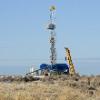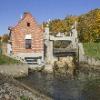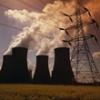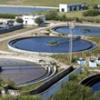The thermo-electricity generating industry is the largest abstractor of fresh water (18.07x106 m3 per day), exceeding even that of the water utilities (16.33x106 m3 per day). Approximately 20% of the water abstracted by the thermoelectric industry is “lost” to evaporation, with the bulk of abstracted water being returned to rivers at higher temperature, and with the cocktail of chemicals used by the industry to control biofouling of cooling towers and other pipework. The energy-water nexus – the interdependency between these two commodities – is the focus of international concern by industries, governments and civil society. It is an area where NERC science is helping to better understand and manage these two, interdependent resources.
The oil and gas sectors all make use of outputs from NERC freshwater science in optimising productivity and minimising their impacts upon the environment, human health and other industries. Major concerns relate to how water is produced and managed during production, and the impact of pollution events upon the environment.
Freshwater is a key factor across a range of the UK’s sources of renewable energy. In addition to the obvious importance of water in the design and operation of hydropower stations, water is also a factor affecting the growth rates for biofuel crops such as Miscanthus. Freshwater science also plays a significant role in the design and operation of operation of some tidal power stations, affects the efficiency of ground source heat pumps as well as a number of other types of renewable energy.
NERC science has supported the development of a wide range of the methods and tools used by energy companies, including :




























 The Water Security Knowledge Exchange Portal supports the objectives of the
The Water Security Knowledge Exchange Portal supports the objectives of the 